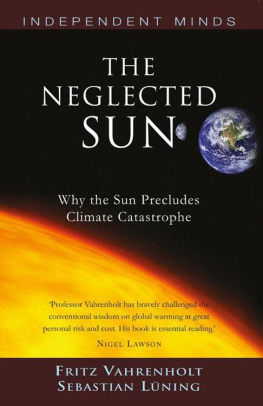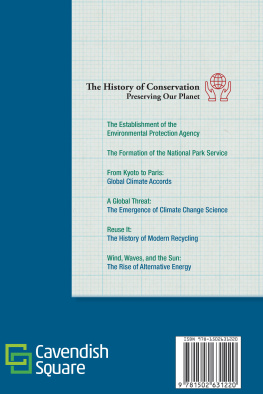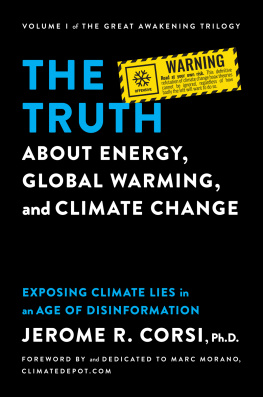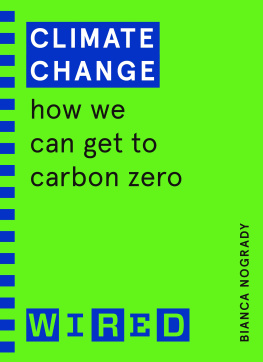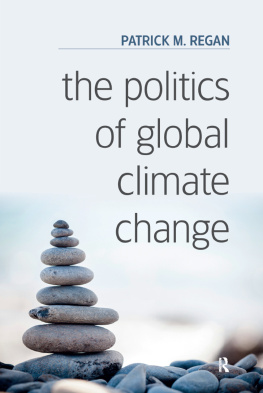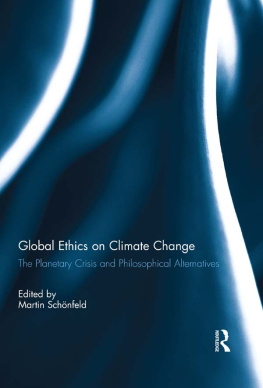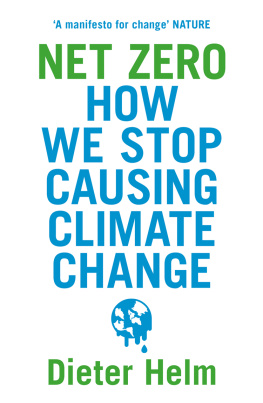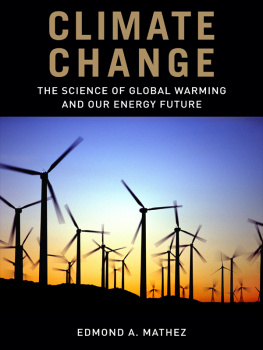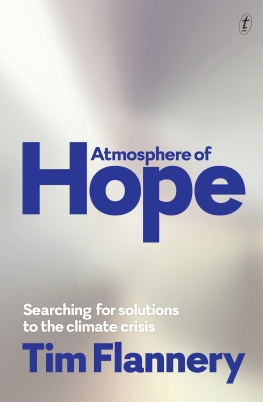T HE N EGLECTED S UN
Why the Sun Precludes Climate Catastrophe
Fritz Vahrenholt
and
Sebastian Lning
Translated from the German, Die kalte Sonne
by Pierre and Doris Gosselin


The greatest challenge facing mankind is the challenge of distinguishing reality from fantasy, truth from propaganda.
... We must daily decide whether the threats we face are real, whether the solutions we are offered will do any good, whether the problems were told exist are in fact real problems, or non-problems.
Michael Crichton, 2003

C ONTENTS
Guest contributor: Nir J. Shaviv |
Guest contributor: Nicola Scafetta |
Guest contributor: Henrik Svensmark |
Guest contributor: Werner Weber |
Acknowledgements
We thank Pierre Gosselin for his fruitful input. He not only translated the book into English but provided invaluable content suggestions. Furthermore, on his blog notrickszone.com Pierre regularly features key articles from our German-language blog kaltesonne.de in English, for which we are very grateful.
Preface
The day the book Die kalte Sonne was launched in Germany happened to be the coldest of 2012. And 6 February was remarkable for another reason too: on that day Germanys power grid teetered on the brink of collapse. Having decommissioned eight of its older nuclear reactors, the country was no longer able to guarantee its own power supply. Electricity from an old, mothballed, oil-fired power plant in neighbouring Austria and from Czech nuclear power plants had to be fed in to prevent Germanys power supply failing.
In 2011 Chancellor Angela Merkel announced that Germany would implement the Energiewende (energy turnaround) in an attempt to replace nuclear and fossil fuel power plants with renewable sources. At the same time, she promised that Germany would no longer need to import electricity and that electricity prices would not go up. Within less than a year this grand declaration proved to be little more than wishful thinking. Today electricity prices in Germany are soaring out of control due to unlimited subsidies given to renewable power, and the German power supply can be secured only through emergency decrees. Power companies also have to keep unprofitable power plants on standby and large power consumers may find their supply cut off in the event of unexpected supply bottlenecks. Within less than a year, Germany has gone from having a power supply that was one of the worlds most stable to one that is on the brink of collapse.
How did Germany reach this point?
Germany is implementing an energy policy driven by fear. After a catastrophic tsunami on the other side of the globe struck Japan in 2011, causing the Fukushima reactor accident, fear gripped Germany. While other leaders such as Britains David Cameron and Frances Nicolas Sarkozy soberly acknowledged that a tsunami could not be expected in their respective countries and that their reactors were deemed safe, Merkel lost her nerve and promptly shut down eight of Germanys nineteen reactors even though they had been rated as among the safest in the world.
At the same time, the German government made generating 80 per cent of the countrys electricity from renewables wind and solar energy by 2050 a national priority. Gas, coal and oil would not play a role in the future because Germanys energy policy was being driven by fear of a climate catastrophe.
This fear was being fanned by climate scientists such as Professor Hans-Joachim Schellnhuber of the Potsdam Institute for Climate Impact Research. He had been promoted to the position of chief climate adviser to the German Chancellor. Schellnhuber and his group succeeded in apportioning all the blame for past and future climate change on CO2 alone. He is on record as saying, We can show that there is an extremely simple, quasi-linear relation between the global mean temperature and the total amount of CO2 that will be emitted into the atmosphere over the next four or five decades. The climate systems entire complexity can be boiled down to this simple linear relation [].
Politicians simply accept this as true and base energy and social policy on this. The climate scientists who shape public opinion and the IPCC postulate that an uncurbed rise of atmospheric CO2 concentration will lead to a dramatic temperature increase of 26 C.
Spreading fear is poor policy
It is this fear-driven energy policy that has led to millions of tonnes of wheat being converted into biofuel, with some even being imported for that purpose. Our fear-driven energy policy has led to wind parks being erected in the middle of forests, thus destroying the function of the forest. Fear is why half of the worlds photovoltaic capacity is installed in mostly overcast Germany, a country with no more sunshine than Alaska. This German energy policy mantra is what we question in our book. The reaction to our book from politicians and media was predictable: indignation, ostracism and marginalization of the issues and the authors.
Just what outrageous facts did we bring to light? We were able to cite hundreds of scientific studies showing that the changes in the suns activity and oceanic decadal oscillations are responsible for at least half of the recent warming, which means that the contribution of CO2 is at most half.
Yes, some warming can be traced to anthropogenic and natural sources, but the impact of CO2 has been wildly exaggerated. A warming of 26 C is not to be expected by the end of the twenty-first century; a warming of about 1 C is more likely. Worse still: the sun and ocean decadal oscillations indicate that we are entering a period of modest cooling that will last decades.
Consequently, the earth-burning climate catastrophe, which has long been a creed for many in politics and the media, should be abandoned. That would mean cancelling the annual circuses of 20,000 participants in exotic venues like Doha, Cancun and Durban. The high priests of climate fear would no longer be welcome; political advisers and their huge research budgets would shrink. The much yearned for transformation envisaged by green ideologues, where a centrally controlled energy economy would be put in place and hollow out the nations industrial base, would disintegrate. The alarming headlines of the globe burning up, which no doubt boost circulation and ratings, would quickly become a thing of the past. Indeed, there was a real threat to alarmism when Germanys most widely circulated daily Bild changed tack and ran a series titled The CO2 Lie just after our book was released.
Everything is fine just dont voice any criticism!
There were plenty of reasons for the media, scientists and politicians to avoid spreading such realism. Especially active in this respect were the leftist-liberal weekly Die Zeit (Vahrenholt as the front man of a new eco-reactionary movement) [] and the conservative Frankfurter Allgemeine Zeitung (Obsolete climate claims, ridiculous). On the other hand, the weekly news magazine Der Spiegel and other dailies such as Die Welt gave the issues examined in our book broad coverage.
The reaction of some climate scientists was particularly harsh, among them Professor Jochem Marotzke, director of the Max Planck Institute for Meteorology, Hamburg. He kept it as simple as possible by claiming that we were not real climate scientists: If Vahrenholt studied the IPCC report, then he read a lot but understood little []. Universities, academies and other institutes came under pressure to cancel scheduled speaking engagements by the authors.
Next page
